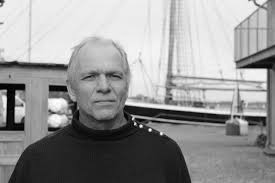To carry out his research project, Associate Professor Erik Jørs and his team used a wide range of research methods. The most common methods used are cross-sectional studies, cohort studies and qualitative study designs such as interviews and focus groups.
Erik Jørs's interest in global health began when he was a medical student. His first experience was in Bolivia, where Erik spent a year and a half in the Andean mountains of Villa Serrano with the International Medical Cooperation Committee (IMCC). In this first experience in Bolivia, Erik contributed to improving access to health care for people living in the mountains. By training villagers to provide basic health care, the project supported local traditional medicine. The impact of promoting local medicine was so great that in 2005 the Bolivian government created a sub-ministry for traditional medicine, which helped spread the initiative throughout the country. As a volunteer, Erik has replicated the project in Uganda.
Based on his experiences in Bolivia, Associate Professor Erik Jørs co-founded the NGO Dialogos in 1990. Today, Dialogos works to promote health in Bolivia, Uganda, Nepal and the Philippines, focusing on the prevention of diseases, particularly those related to poor working conditions, through collaboration with local partners.
Associate Professor Jørs has maintained strong links with Bolivia throughout his career. In collaboration with the Institute of Occupational Health in La Paz, Erik had written his doctoral thesis on the prevention of pesticide poisoning in rural areas. Erik proposed a balanced approach: minimising the use of pesticides by using alternatives such as organic methods and ensuring proper protection when pesticide use is necessary. The initiative has been endorsed by the Food and Agriculture Organisation of the United Nations (FAO). Erik Jørs has replicated the same project in Nepal and Uganda to help minimise pesticide poisoning.
Erik Jørs worked also with the Geological Institute of Copenhagen on a project in the Philippines to tackle gold mining and mercury pollution. The plan was to introduce a method that would allow small-scale miners to extract gold without using mercury. This innovative approach gained recognition and was later adopted by the United Nations Environment Programme as a key strategy for eliminating the use of mercury in small-scale mining.
Erik is currently working on a waste management solutions project in Nepal, focusing on tackling the country's growing waste problem. His efforts include teaching families and households how to effectively sort their waste. Erik's work extends beyond households to waste workers, teaching them innovative ways to reuse and recycle waste, empowering them to play an active role in improving waste management and promoting a circular economy.
What Erik enjoys most is working with colleagues from all over the world. For him, it's not just about science - it's about building relationships, fostering collaboration and creating strong networks. Working in global health is a multifaceted endeavour that requires more than technical expertise. Effective communication is key, and that often means speaking multiple languages to connect with and understand the local communities you work with.
Erik Jørs has made significant global contributions through his work with various organisations. He is a member of the International Commission on Occupational Health (ICOH), in particular its Scientific Committee on Mining Safety and Health. He has worked with Plagbol in Bolivia on pollution and health issues, with the Nepal Development Society (NeDS) on development and health challenges, and with KIMHECOP in Uganda to improve health outcomes for the Karamoja community. He is also involved with the Danish Association for Occupational and Environmental Medicine (DASAM), demonstrating his commitment to advancing global health through partnerships and community-driven solutions.
Associate Professor Jørs brings his experience to his teaching at SDU, offering students the opportunity to participate in global health projects abroad. Medical students can take part in a global health programme where they carry out fieldwork and write a dissertation based on real-life challenges. From February 2025, a new course will provide students with enhanced guidance to further support their development as future global health professionals.
